Thru-hiking with Lupus
Photo courtesy of Shawn Lee
Kisha Jarrett is one of a handful of Black women who are thru hiking trails across the U.S. This summer she'll be heading out on the Pacific Northwest Trail, a 1,200-mile recent addition to the National Scenic Registry. The path that led her to backcountry hiking and camping is not exactly traditional. Unless your first guess was theater and television—then you'd be right!
Photo courtesy of Kathleen Kelly
Kisha is the Managing Director at Artists Repertory Theatre in Portland, Oregon. She is a creative change-maker with a background in marketing and development. Throughout her ten-year career in Arts Management, she has helped raise over $50 million dollars for various organizations.
After many years on the east coast, Kisha’s introduction to the world of outdoor recreation started with a move to Portland in 2016. “I just really enjoyed all the parks that were here,” she reflected, “Washington Park was my first one. I found the trees and the fog and the weather all very magical.” That cinematic lens is an important part of her identity and approach to life. She is forever searching for magic in ordinary things
“...I still never see me when I go to purchase outdoor gear. Not only me as a Black woman but me as a plus-sized Black woman, with a chronic illness.”
In her professional life, Kisha has occupied many roles including writer, director, producer, actor, musician, costume designer and storyteller. SHe has performed on-screen and on stage at Portland Center Stage and at the Armory. Her storytelling credits include winning the 2017 and 2018 Moths Grand Slam as well as producing and co-hosting Back Fence PDX.
She is currently creating an educational piece for the Oregon Bar Association about four black suffragettes in Oregeon in addition to working post-production for an Oxygen network short film (See Me), and writing her first novel. Oh, then there’s her feature-length screenplay and pro-production for a feature length documentary, Black Girl in the Woods, documenting one woman's thru-hike of the Pacific Northwest Trail. Add her position on the board of directors for Global works Community Fund, a youth empowering organization, and she basically doesn't sleep.
Kisha described her pathway to outdoor recreation as non traditional. Her family didn’t go hiking or camping when she was young. And even though she was a high school and collegiate athlete her focus was on soccer, softball and competitive cheer. Becoming a thru-hiker was not something Kisha would’ve seen herself doing several years back. “ I thought I didn't like being outside except while playing sports,” said Kisha.
The trail she is embarking on this summer is a cross-country route linking the west coast to the big sky states. The Pacfic Northwest Trail travels through some of our countries’ most stunning and breath-taking terrain. At over 1200 miles-long, the trail passes through five primary geographic areas: The Rocky Mountains, Okanogan Highlands, North Cascades, Puget Sound and Olympic Peninsula.
These regions are the ancestral lands of Ktunaxa Amakis, Kalispel, Sinixt, Colville, Okanagan, San Poil, Nespelem, Nlaka’pamux, Skagit, Coast Salish, Snohomish, Snoqualmie, Skokomish, S'Klallam, Quinault, Chalat and Makah tribes.
Photo via Getty Images
Ron Strickland is credited for conceiving the Pacific Northwest Trail in 1970. In 2009 it was officially designated as a National Scenic Trail, in its entirety, under the Omnibus Public Lands Management act passed by Congress and signed by then President Obama. “I didn't really want to do the PCT,” said Kisha, “ The draw of the PNT was it’s more rugged and less trafficked in nature. I hope to be able to do the whole thing.”
“I thought to myself, “I’m not worried about bears.” But they were referring to me being a small Black woman in a rural area. Then it clicked and I thought more about it. I don’t get an extra medal for hiking it solo. ”
In addition to her many credits, both personal and professional Kisha also lives with lupus, an autoimmune disorder that causes her immune system to attack her nerves, organs, and tissues. Black women are disproportionately affected by lupus and tend to experience more life threatening complications. The disorder manifests as severe joint pain, swelling, fatigue and kidney disease among other symptoms.
Kisha also experiences angioedema, localized facial and throat swelling that requires an epipen as well as Sjögren Syndrome, a separate autoimmune disorder whose symptoms can include extreme sensitivity to cold, joint and muscle pain, fatigue, thyroid issues and kidney involvement.
She recalled a trip she took prior to fully understanding the effects of the disorder on her body. “We were all going out for the evening and I wanted to be out, but I was having an episode,” Kisha recalled “I couldn’t make the connection. I couldn’t read my body yet; it was telling me this was happening here and now.” The inability to keep up, to be stopped in her tracks by her own body was devastating. “That destroyed me because so much of my identity was tied up in my ability to do things,” Kisha explained. “I was an athlete. I thought, ‘I can do this,’ however, that's just not what my body was allowing me to do.”
Kisha has found a path forward through trial-and-error and by learning to navigate the ups and downs of her chronic illness. “Now that I have been listening to my body for a long time, I’m better able to sense when episodes are coming,” she reflected. “I’ve had help and assistance with learning how to listen to my body and also some therapy. I can listen to myself and say, “No, let's find another course.” It doesn’t mean quit or stop. It means we can’t continue on the current path.”
Have you ever taken a longer hiking trip or solo trip?
In November 2019 I did my first solo trip. I had never gone anywhere just by myself. I went to Reykjavik, Iceland. I went on all of these walks around the countryside. I got rides out to the national parks and I hiked up the waterfalls. Eventually I met someone at a bar and they were talking about hiking on a glacier. I thought, “Yes. Let me do that.”
What they did not tell me was that it was hiking to a glacier. You do get a glacier walk, but they give you all the gear and you harness up and they just take you up on the glacier. I’m a bigger black female that also has lupus and I went up this glacier and was like, “I KILLED IT!” I came back to Portland PUMPED. I wanted to be outside all the time. I wanted to do all the things. I wanted all the activities. I came home and was like, “I’m getting hiking boots. I’m watching Free Solo!” I’m going to read climbing magazines and all the Krakauer books.
“I don’t feel as a Black woman that I could’ve done this as a solo trip—just for the factor of traveling through rural Montana, Washington and Idaho alone. ”
So what was your next move?
I went to Bali in February of 2020. It was right before we realized how impactful Covid was going to become. Everything wasn’t shut down yet. So I went. I went surfing and took a few trips while I was there. I wanted to find some outdoorsy thing to do so I signed up for this trek with 10 people. I hiked Iwo Jima at night to see the blue sulfur. Then we watched the sunrise. It was one of the most amazing things I’d ever done in my life. The juxtaposition of seeing the northern lights in Iceland then seeing the sunrise in Bali in a three month period was crazy. It was transformational.
So you went all in?
Totally. But as I consumed more and more I learned more and more. I never saw anyone who looked like me while I was traveling. I love the diversity that has become more prevalent in the outdoors and travel industry but I still never see me when I go to purchase outdoor gear. Not only me as a Black woman but me as a plus-sized Black woman, with a chronic illness. So those are things I never see.
So representation is lacking in the Outdoor Industry?
I work in theater. I work on movies. I make movies. It is not enough to have Black women be the sassy sidekick. We have stories to contribute! On top of that I’ve never heard of or seen a group that is specific to people with chronic illnesses or conditions. You can’t look at me and know I’ve lupus - it’s invisible. This chronic pain that I live with, that many people live with. I’ve never heard one person in an outdoor advertisement talk about chronic pain. And I’ve watched 50 docs in the name of research for this project. If it exists, I haven’t seen it. And that is bonkers. There’s no way you can tell me that they’re not out there. All it takes is one person to see. To see it and then say, “I can do it.” And have that be represented, that's so powerful.
Could you tell me about the documentary project you’re creating for this trip?
The focus of the documentary is to highlight the process and journey. In addition to having a small crew with me a few select people will be joining me on the trail along the way. Part of why I wanted to do it as a documentary is I’m not seeing anybody that has these issues that are represented in major stores and publications. This is an opportunity to highlight that and bring some focus to these groups. Because when you look at outdoor documentaries it’s the white climbers, the four white friends that want to hike the Grand Canyon, a white slackliner between buildings. It is rarely anyone other than the cis white male adventurer. And if a woman is being featured they are invariably small white women.
Are you going to be hiking alone most of the time or with a group?
I initially wanted to do this as a solo hike but that changed three weeks after I put the intention out that I was going to do this. Every person I knew was like you’ve gotta worry about safety.
I thought to myself, “I’m not worried about bears.” But they were referring to me being a small Black woman in a rural area. Then it clicked and I thought more about it. I don’t get an extra medal for hiking it solo. I don’t get a banner. It's a major accomplishment matter what. Doing it with folks is fine.
So who will be joining you on the trail?
I’m thinking about having eight guest hikers that will join me at different points. I don’t feel as a Black woman that I could’ve done this as a solo trip—just for the factor of traveling through rural Montana, Washington and Idaho alone. Which sucks because this land belongs to me as much as it belongs to anybody else. Sometimes people have asked, “Why do you have a white director going on the trip?” Because I have to. I can’t not have one. That is something that I hope to explore more as we make the doc on the thru hike.
My co-director is Shawn Lee. Our sound and travel medic is Leslie Crandell-Dawes. We will also have a PA as well as another crew member to help with logistics. We’re going to film shorts to highlight the featured guest hikers. I hope that will let people be able to connect with their stories in a positive way. Getting to see them in this new environment is super exciting for me. And I’m looking forward to those conversations and experiences with them.
When are you doing this trip and how long will it take?
I'm planning on leaving somewhere near the first of July. I’m expecting 60-70 days on the trail. My goal will be to travel 15-20 miles per day with one day breaks each week.
That’s a solid pace. Gotta protect your feet.
I keep hearing that! I’m training consistently for it. I have a training regimen that focuses on legs and core strength so that I’m ready, come July 1, to hike 15-20 miles a day with a 35 lb pack. And also figuring out how to do that without restorative perks like epsom salt baths and the like.
Photo credit Shawn Lee
How did you decide on a training regimen?
A bunch of people have told me about building myself up for thru hiking. Like incrementally working towards distances, getting time on my feet. Honestly, the rest came from Pinterest. Both recommended incrementally increasing stress loads. Using stacking.
Had you already been working out or training before taking on this project?
I started really working out during the pandemic because I couldn’t be in my house for that long. Just being outside taking these extravagant walks really helped my mind. I guess I haven’t gotten out of the habit. The best therapy has always been swimming but I’m too nervous to go back into gyms right now still.
Are there motivations for the project in addition to representation?
I’m excited about getting on the trail and meeting people in stunning locations. Going to places that I never ever thought about. Places I would've never gone in my youth. My family was never the kind that took us on vacations like that. That was not us. It’s sad that I lost so many years to not being interested in it. Not knowing what’s out there. Not being able to take in the beauty of this country.
What are one or two things you hope to experience while you’re out there?
I want to prove to myself that I can do it. Not to anyone else. If I only make it half way and I go back and do the last half I’d still consider that a win. I’m just excited to push myself through those physical challenges. So much of it is mental. It’s your mind saying to stop, not your body. I’m excited to see how strong I can be. I also love meeting new people! I like talking to people and finding out new things and experiencing things with them. I live for those new experiences! I feel like just being able to get one on one personal conversations with people that I would never ordinarily talk to is really exciting. I’m looking forward to it all!






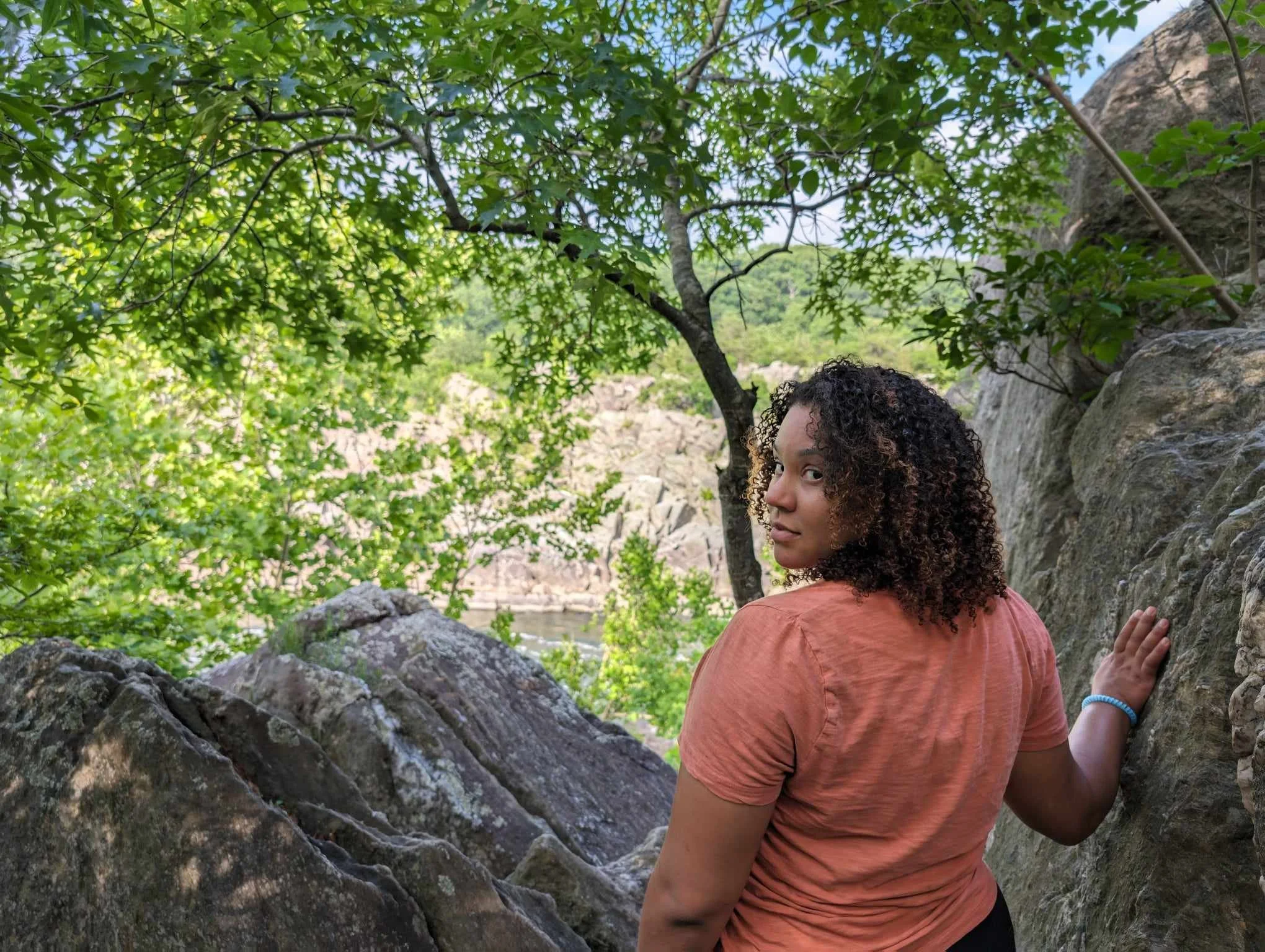

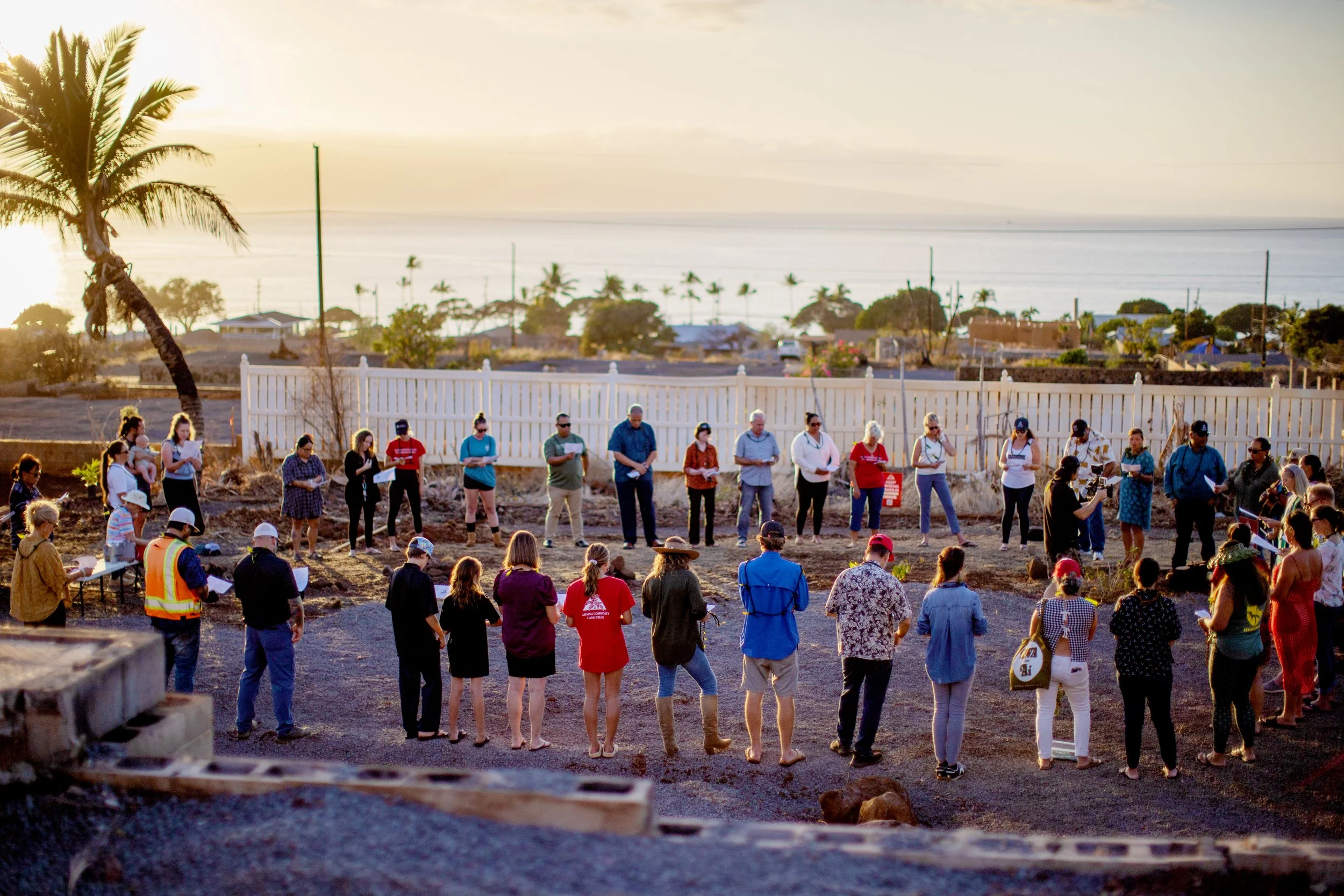


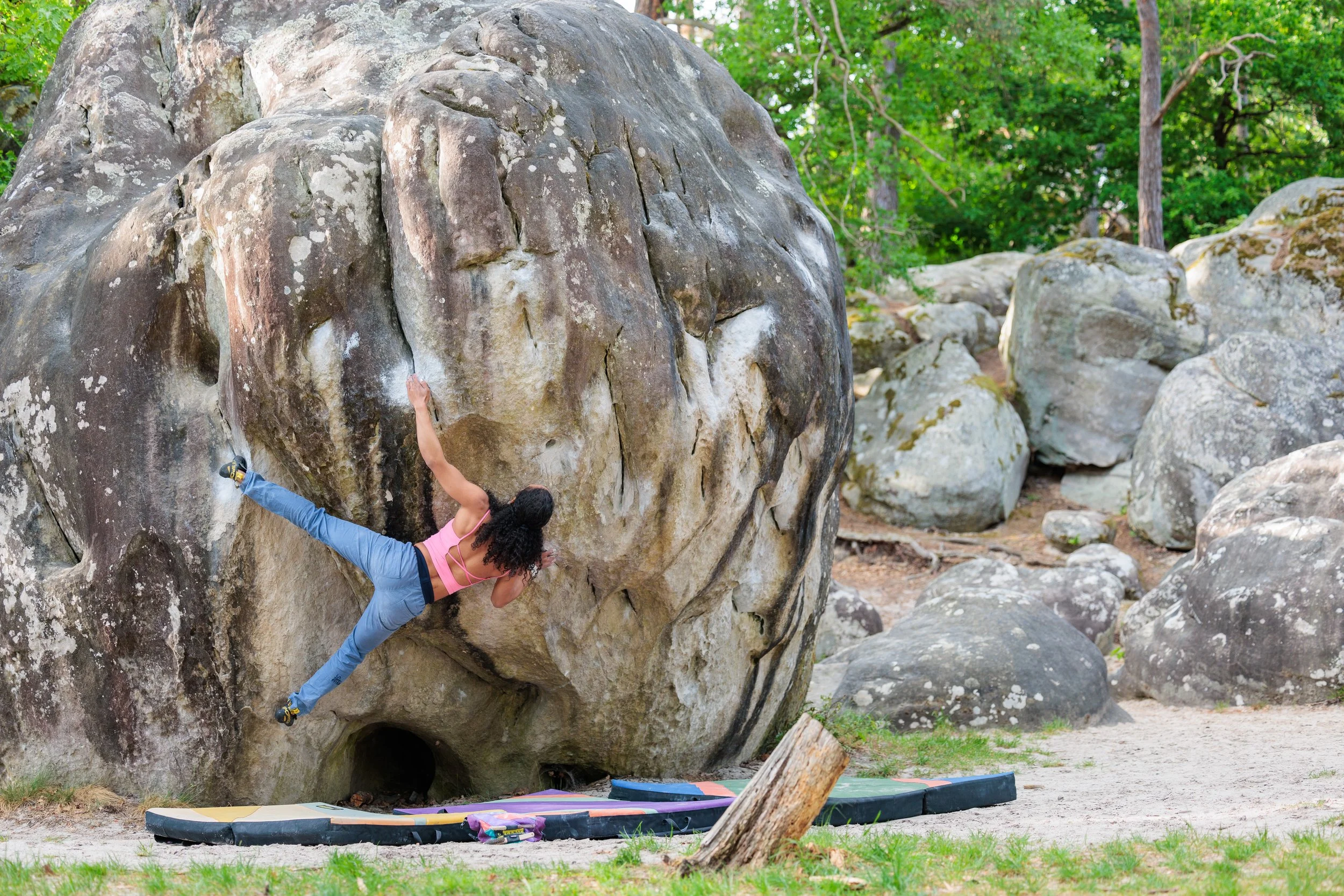




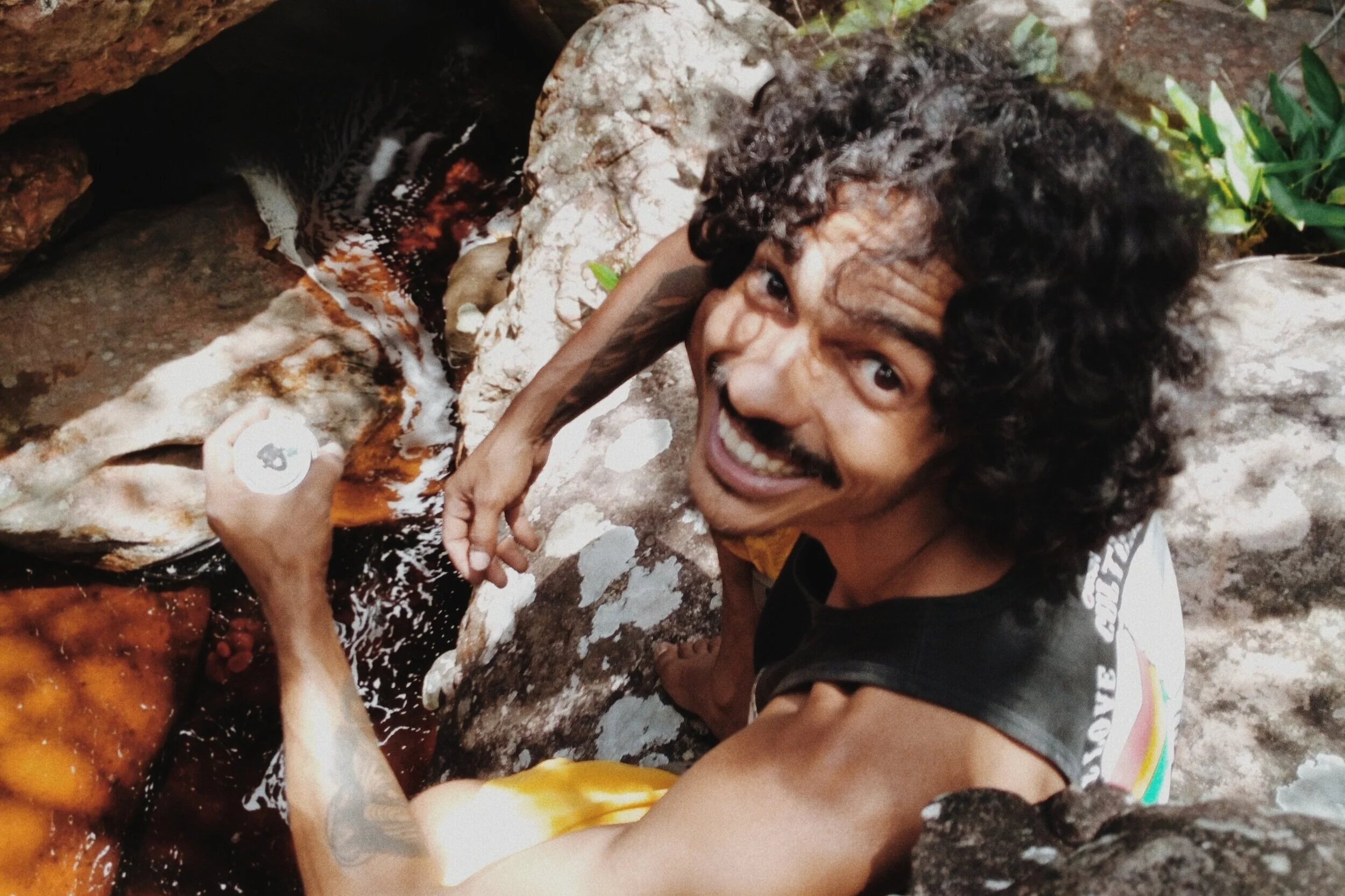





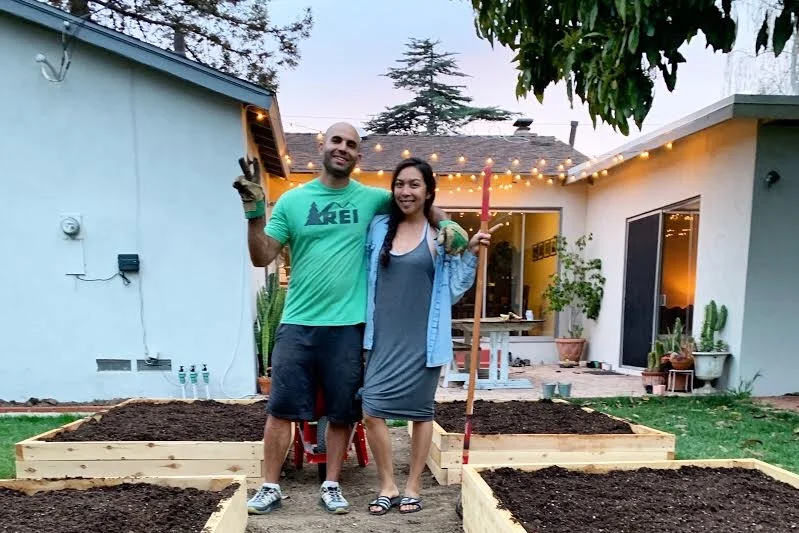

I also know that hunger disproportionately impacts Black Americans who make up nearly 30% of SNAP recipients. So why would I celebrate cuts to a program that is a lifeline for so many people?